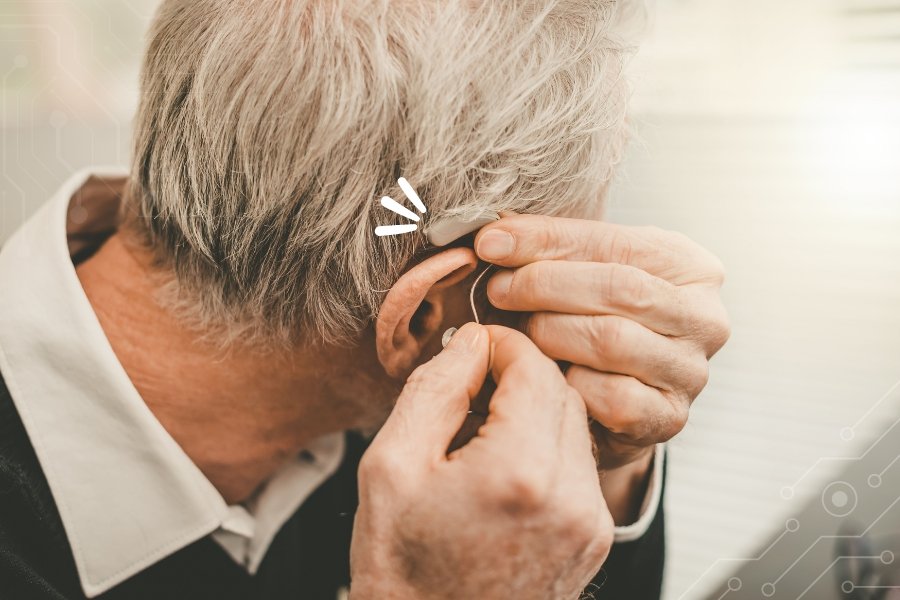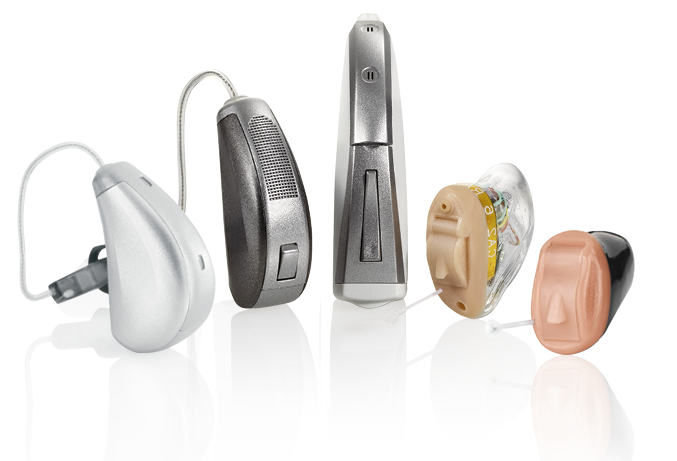
Hearing aids have revolutionized the lives of many by improving their ability to hear and communicate effectively. However, one common issue that many users experience is hearing aid feedback or whistling.
This high-pitched sound can be frustrating and embarrassing, but fortunately, there are several ways to deal with it. In this blog, we will explore the causes of hearing aid feedback, how to prevent it, and why regular maintenance is essential. Additionally, we’ll explore the most affordable and best hearing clinic in Aurangabad, which is known for providing top-notch hearing solutions.
What Is Hearing Aid Feedback?
Hearing aid feedback occurs when sound that the hearing aid has already amplified is picked up by the microphone and re-amplified. This creates a loop of sound, resulting in a high-pitched whistling noise. Feedback is a common issue in hearing aids, especially in situations where the hearing aid is not properly fitted, or when external factors influence the device’s functionality.
Feedback can occur in different scenarios, such as when you are placing your hand near your ear, hugging someone, putting on a hat, or even when you are adjusting the hearing aid. It’s important to understand that hearing aid feedback, while annoying, is usually fixable.
Common Causes of Hearing Aid Feedback
- Loose or Poor Fitting Hearing Aids: If your hearing aid is not snugly fitted into your ear canal, sound may leak out and be picked up by the microphone, causing feedback. Over time, your ear shape might change, or the hearing aid itself may loosen.
- Earwax Buildup: Earwax can block the ear canal and interfere with the hearing aid’s sound delivery, causing feedback. Regular ear cleaning is essential for hearing aid users to prevent this issue.
- Improper Volume Settings: Setting the volume too high on your hearing aid can increase the likelihood of feedback. While it may seem like a good idea to boost the volume to hear better, it may result in unwanted sounds being amplified.
- Damaged or Worn-out Components: Hearing aids are sensitive devices. Any damage to the microphone, tubing, or other components can lead to feedback. Regular maintenance and replacement of parts are necessary to keep your hearing aids in optimal condition.
- Poor Ear Mold Fit: If you use a custom-fitted ear mold and it doesn’t sit properly in your ear, the loose fit can lead to sound escaping and creating feedback.
How to Prevent Hearing Aid Feedback
While feedback can be an annoying problem, it’s not something you have to live with. Here are some effective tips to prevent and manage hearing aid feedback:
1. Ensure a Proper Fit
The most important thing you can do to reduce hearing aid feedback is to ensure a proper fit. If your hearing aid does not fit snugly in your ear, it’s more likely to cause feedback. Custom-fitted ear molds are often the best solution, especially for those with unique ear shapes. If your hearing aid is loose or uncomfortable, schedule an appointment with an audiologist to get it refitted.
2. Clean Your Ears Regularly
Earwax buildup can obstruct the sound coming from your hearing aid, causing feedback. It’s important to clean your ears regularly and keep earwax at a manageable level. If you have excessive earwax, consult a doctor or audiologist to have it safely removed.
3. Adjust the Volume
If you’re experiencing frequent feedback, try lowering the volume of your hearing aid. Most modern hearing aids have noise suppression features that automatically adjust the volume, but if your device doesn’t, manual adjustments may help reduce feedback.
4. Regular Maintenance and Check-ups
Your hearing aids should be checked regularly by a professional to ensure that all components are working properly. This can prevent feedback caused by damaged or worn-out parts. Regular cleaning of the device can also help avoid any buildup of debris that might interfere with its functionality.
5. Consider New Technology
Many new hearing aids come with feedback cancellation features that automatically reduce or eliminate feedback. If you’ve been using the same hearing aids for a long time, it might be worth considering an upgrade to a more modern device with better feedback management.
6. Proper Insertion
Sometimes, feedback is caused simply because the hearing aid isn’t inserted properly. Take care to ensure that your hearing aid is securely placed in your ear every time you put it on. This can prevent sound from leaking and creating a feedback loop.
Why Choose SPees Early Intervention Center?
When it comes to addressing hearing loss and managing hearing aids, SPees Early Intervention Center stands out as the best and most affordable hearing clinic in Aurangabad. SPees is renowned for providing comprehensive hearing solutions, including fitting, maintenance, and expert consultations.
Here’s why SPees should be your go-to clinic for hearing aid needs:
- Expert Audiologists: SPees boasts a team of highly qualified audiologists who specialize in hearing assessments, fittings, and follow-up care.
- State-of-the-Art Technology: The clinic offers the latest in hearing aid technology, including devices with feedback cancellation features that greatly reduce whistling and other common issues.
- Affordable Pricing: SPees is dedicated to making hearing care accessible to everyone. The clinic offers affordable pricing and a variety of hearing aid options to suit different budgets.
- Personalized Care: At SPees, patient care is a top priority. The team works closely with each individual to ensure their hearing aids are perfectly fitted and functioning optimally.
Hearing aid feedback and whistling can be frustrating, but with the right approach, it can be managed or eliminated. From ensuring a proper fit to keeping up with regular maintenance, these tips will help you enjoy better sound quality and a more comfortable experience with your hearing aids.
If you’re struggling with hearing aid feedback, or you’re looking for expert hearing care, SPees Early Intervention Center in Aurangabad offers professional, affordable solutions tailored to your needs. Visit SPees for the best hearing care and regain your confidence in hearing.

